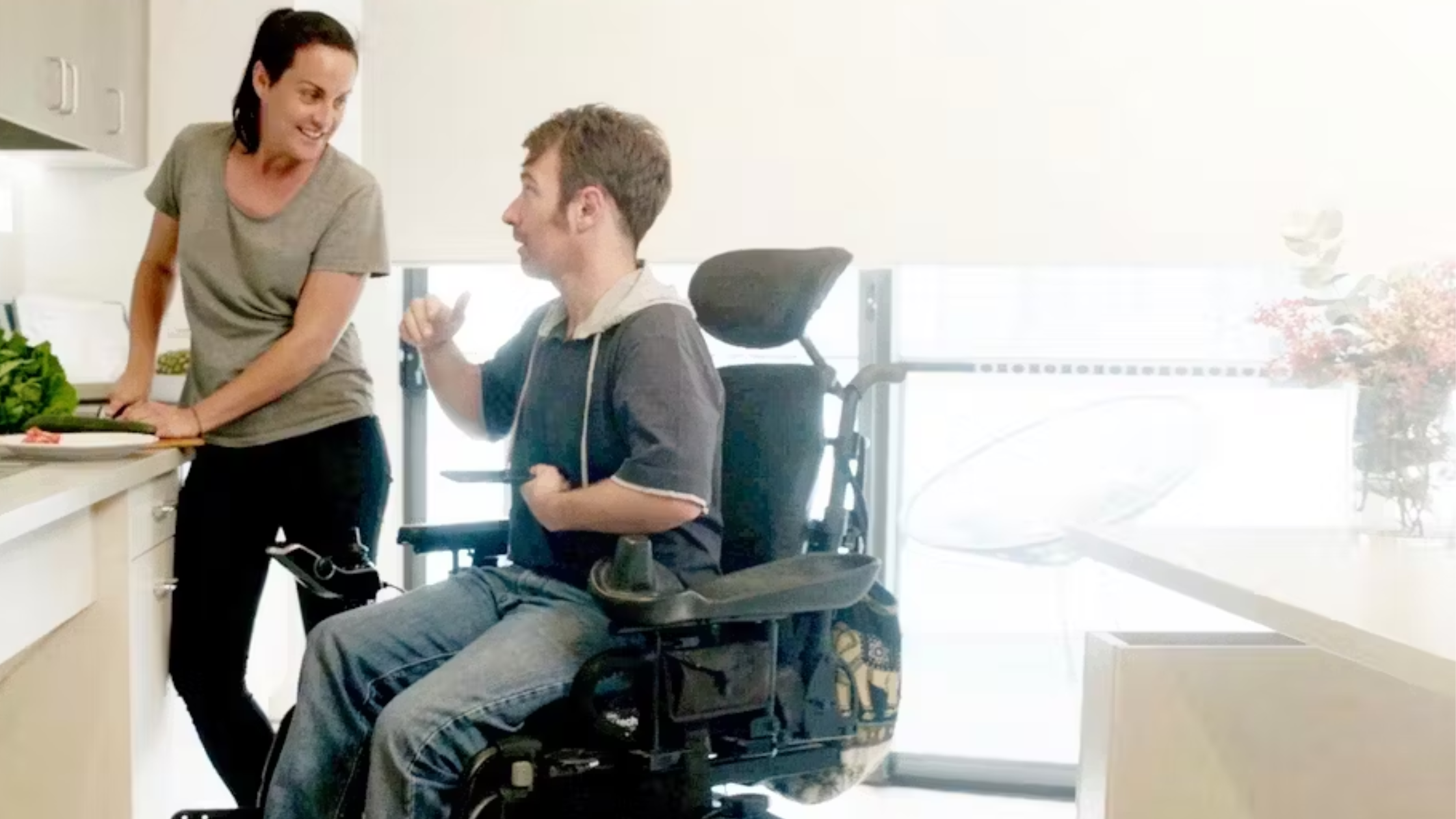
How Disability Support Services Can Enhance Independence
Living with a disability can present a series of challenges, but these challenges don’t have to diminish an individual’s ability to live independently, pursue personal goals, and participate in society. With the right support, individuals can enhance their self-sufficiency, build new skills, and improve their overall quality of life. Disability support services, particularly those available through the National Disability Insurance Scheme (NDIS), offer a framework that helps people living with disabilities gain the independence they deserve.
In this blog, we will delve deeper into how disability support services can foster independence, outline the variety of services available, and explain how disability providers in Adelaide, like Care to Support, are making a difference in the lives of individuals with disabilities.
What Are Disability Support Services?
Disability support services refer to a wide range of services aimed at providing assistance to people with disabilities. These services are designed to help individuals perform everyday activities that they might find difficult due to their disability. Services can range from assistance with mobility and personal care to support for social engagement, employment, and life skills development.
In Australia, the National Disability Insurance Scheme (NDIS) offers financial assistance to individuals with disabilities to access services that cater to their needs. NDIS providers, such as Care to Support, are registered and licensed to deliver these services, ensuring that individuals receive high-quality support tailored to their unique requirements. Through these services, individuals are empowered to live as independently as possible, making informed decisions about their care and support.
How Disability Support Services Enhance Independence
Disability support services play a significant role in helping individuals overcome the limitations caused by their disabilities. By offering personalized, flexible care and access to necessary resources, these services promote autonomy, foster a sense of achievement, and help individuals regain control of their daily lives. Here’s how:
1. Personalized Care Plans
One of the most important ways disability support services enhance independence is through personalized care plans. Every individual’s needs are unique, so a one-size-fits-all approach simply won’t work. Through the NDIS, individuals can access tailored plans that take into account their specific challenges, goals, and aspirations.
Disability providers, including those in Adelaide, work closely with individuals to design care plans that allow for the maximum level of independence. Whether the individual needs assistance with daily activities like cooking, cleaning, or dressing, or more specialized support like therapy or nursing care, the personalized approach ensures that they receive the right kind of assistance to help them thrive.
By focusing on each person’s specific needs, disability support services provide a structured, yet flexible, support system that empowers individuals to make decisions about their care, promoting greater independence and self-determination.
2. Promoting Social and Community Engagement
Independence is not only about completing daily tasks but also about engaging with the broader community. Social participation can sometimes be a challenge for individuals with disabilities, but with the right support, it becomes more achievable. Disability support services can help individuals participate in social events, recreational activities, and community programs, providing them with opportunities to connect with others and develop a sense of belonging.
Community involvement is essential for mental and emotional well-being. Disability support services help individuals with disabilities find their place within the community, whether that means participating in local events, attending support groups, or getting involved in volunteer activities. Engaging with others promotes self-confidence, reduces isolation, and encourages a more active, independent lifestyle.
3. Developing Life Skills
Disability support services are invaluable in teaching essential life skills that promote independence. These skills can range from managing finances and budgeting to learning how to cook, clean, or perform basic household chores. Many individuals with disabilities require guidance to master these tasks, and disability providers play a key role in facilitating this process.
Life skills programs are designed to teach individuals the practical skills they need to care for themselves and manage their lives with minimal assistance. This might include:
- Budgeting and Money Management: Disability providers can help individuals understand how to manage their finances, make informed decisions about spending, and even plan for future expenses.
- Cooking and Nutrition: Disability support services teach clients how to prepare healthy meals, which is crucial for maintaining independence and a balanced lifestyle.
- Household Management: Support in managing household tasks, such as cleaning, organizing, and laundry, helps individuals maintain an independent living environment.
These programs are designed to empower individuals to live independently by teaching them how to manage key aspects of daily life. Gaining these life skills enhances confidence and reduces reliance on others, further promoting independence.
4. Mobility Support and Access to Transportation
For individuals with physical disabilities, mobility can be one of the biggest barriers to independence. Getting around independently is crucial for social interaction, employment, and fulfilling daily responsibilities. Disability support services often include transportation assistance, such as arranging for accessible vehicles, driving support, or helping with travel to appointments or community events.
Access to reliable transportation gives individuals the freedom to attend medical appointments, go to work, meet friends, or participate in leisure activities. NDIS providers work with clients to ensure they have the mobility support they need, reducing the strain on caregivers and allowing individuals to have more control over their day-to-day movements.
5. Assistive Technology and Home Modifications
Assistive technology and home modifications can greatly improve the independence of individuals with disabilities. Whether it’s through the use of mobility aids like wheelchairs or stair lifts, or communication devices like speech-generating devices, assistive technology provides individuals with the tools to perform tasks that might otherwise be difficult or impossible.
Home modifications are also crucial for enhancing independence. This might include installing ramps, wider doorways, or grab bars in bathrooms to ensure individuals can navigate their homes with ease and safety. NDIS funding can help cover the cost of these modifications, making it more affordable for individuals to live in an accessible environment.
6. Employment and Volunteering Support
Having the opportunity to engage in meaningful work or volunteer activities is a critical part of independence for many individuals. Disability support services often include employment support, helping individuals find and retain work that aligns with their skills, interests, and abilities. These services can include job training, resume writing assistance, interview preparation, and ongoing support in the workplace.
Moreover, volunteering opportunities provide individuals with the chance to contribute to society, gain new experiences, and develop social skills. Many disability providers, including Care to Support in Adelaide, offer specialized services that help individuals with disabilities secure employment or volunteer opportunities, empowering them to live more fulfilling and independent lives.
How Care to Support Enhances Independence for Clients
At Care to Support, we are committed to empowering individuals with disabilities to achieve greater independence and a higher quality of life. As a registered NDIS provider, we offer a range of services that are tailored to each individual’s unique needs and preferences. Whether it’s assistance with daily living, skills development, mobility support, or accessing social activities, we are here to help our clients live independently and confidently.
Our team works closely with clients and their families to create personalized care plans that promote independence and self-sufficiency. With a focus on holistic care, we ensure that each individual receives the support they need to lead a fulfilling and empowered life.
If you or a loved one is looking for support services in Adelaide, visit Care to Support to learn more about how we can help enhance your independence.
These services encompass a range of supports, including:
- Personalized Planning: Developing tailored plans that address individual goals, preferences, and needs
- Skill Development: Offering training in areas like budgeting, time management, and self-care to promote independence.
- Emotional Support: Providing counseling and peer support groups to help individuals cope with the emotional aspects of transition
- Community Integration: Assisting individuals in building social connections and participating in community activities.
By addressing both the practical and emotional components of life transitions, these services aim to empower individuals to lead fulfilling and autonomous lives.
Conclusion
Disability support services play a pivotal role in helping individuals with disabilities lead independent lives. From personalized care plans and life skills development to social engagement and mobility support, these services provide the tools needed to navigate daily life and participate in society. NDIS providers and disability providers in Adelaide, like Care to Support, are essential partners in helping people with disabilities achieve their goals and gain the independence they deserve.
By offering personalized support and empowering individuals with the skills, tools, and confidence to live on their own terms, disability support services pave the way for a more independent and fulfilling future.
Recent Posts
- All Posts
- Blog







